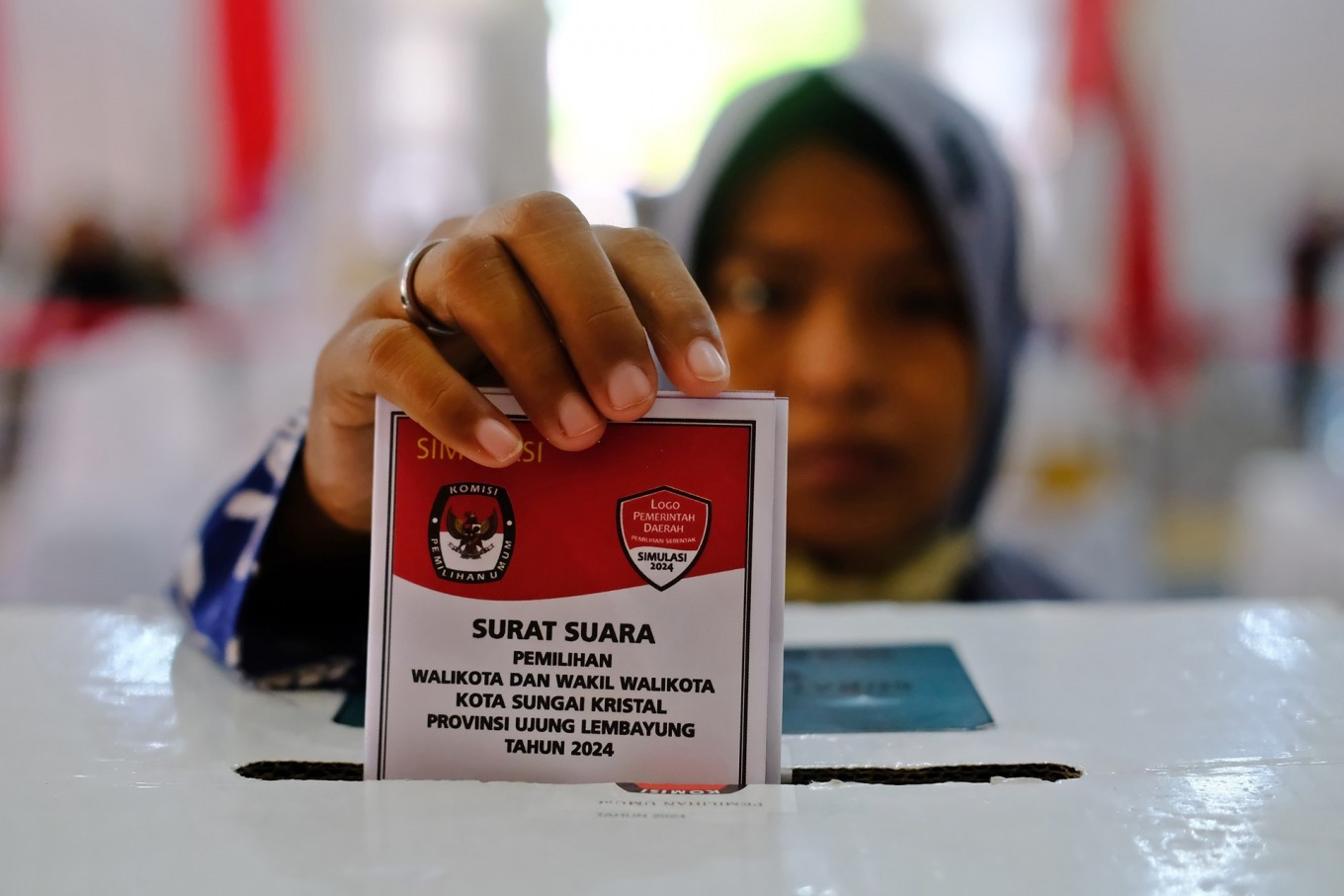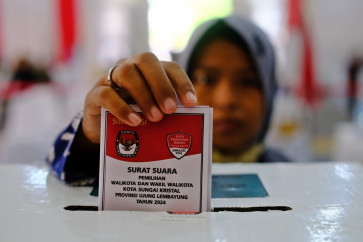Popular Reads
Top Results
Can't find what you're looking for?
View all search resultsPopular Reads
Top Results
Can't find what you're looking for?
View all search resultsAnalysis: Jokowi, Prabowo allies dominate key regional races
Change text size
Gift Premium Articles
to Anyone
W
ith the final results of the country’s simultaneous regional elections not expected until Dec. 16, the quick count data offers a glimpse into the shifting dynamics of power, particularly between the governing coalition of President Prabowo Subianto, including former president Joko “Jokowi” Widodo, and the Indonesian Democratic Party of Struggle (PDI-P).
Key regions such as Jakarta, West Java, East Java, Central Java, North Sumatra and Bali have emerged as battlegrounds for this proxy struggle. While most candidates that enjoyed the public support of Prabowo and Jokowi have thus far emerged victorious, the PDI-P has also triumphed over certain blocs.
Despite being backed by the entirety of the larger Onward Indonesia Coalition (KIM plus) in Jakarta, Ridwan Kamil and Suswono are falling behind Pramono Anung and Rano Karno of the PDI-P. The former garnered around 39 percent of the vote, while the latter reached 50 percent, according to pollsters Charta Politika Indonesia and Parameter Politik Indonesia. The PDI-P’s ability to maintain its dominance in Jakarta will serve as a litmus test for its preparedness to counter Prabowo and Jokowi's growing influence across the archipelago's other regions.
For example, in West Java, the country’s most populous province, Gerindra politician Dedi Mulyadi and his running mate Erwan Setiawan have dominated the polls with a quick vote count of 61.14 percent, far outpacing his three competitors, even though KIM plus’ support splintered for this region’s gubernatorial race. For this election, the National Awakening Party (PKB) nominated its own members, while the Prosperous Justice Party (PKS) teamed up with the NasDem Party to support another candidate pair.
Meanwhile, in East Java, incumbent Khofifah Indar Parawansa, who is completely backed by the total 15 political parties of the KIM alliance, comfortably leads with 59.22 percent of the vote, compared to her PDI-P rival, Tri Rismaharini’s 39.2 percent, according to Poltracking Indonesia. This decisive margin reaffirms Khofifah’s enduring popularity and her ability to consolidate support in a province that has historically been a battleground for competing national alliances, including that of the country’s largest and most influential Islamic organization, Nahdlatul Ulama (NU).
Shifts in voter sentiments were observed in Central Java, long regarded as a traditional stronghold for the PDI-P. The quick counts indicate that Ahmad Luthfi, backed by the KIM alliance, is leading with 58.24 percent of the vote, ahead of the PDI-P’s Andika Perkasa, who secured 41.76 percent of the vote, according to Indikator Politik Indonesia.
Moreover, PDI-P-backed candidates Edy Rahmayadi and Hasan Basri for the North Sumatra gubernatorial election appear to have lost to Jokowi’s son-in-law Bobby Nasution and his running mate Surya, with the latter securing a commanding 63.01 percent of the vote.



















